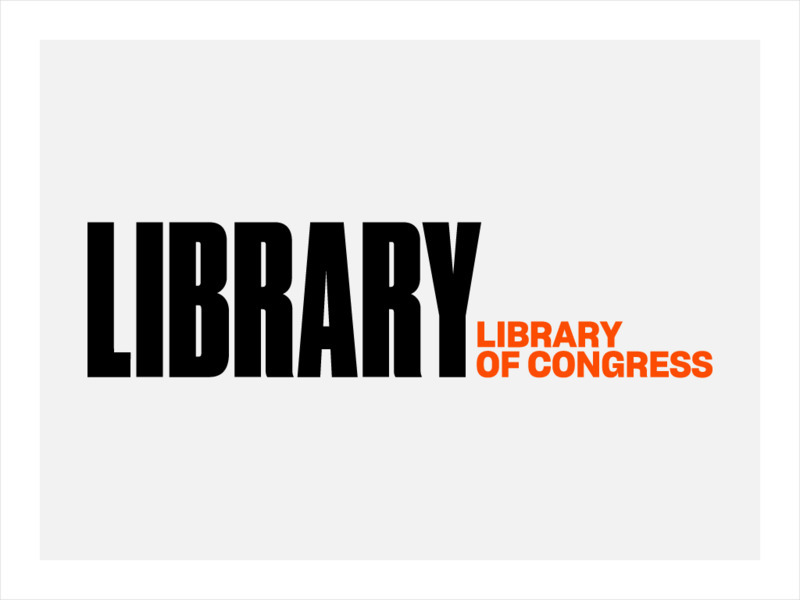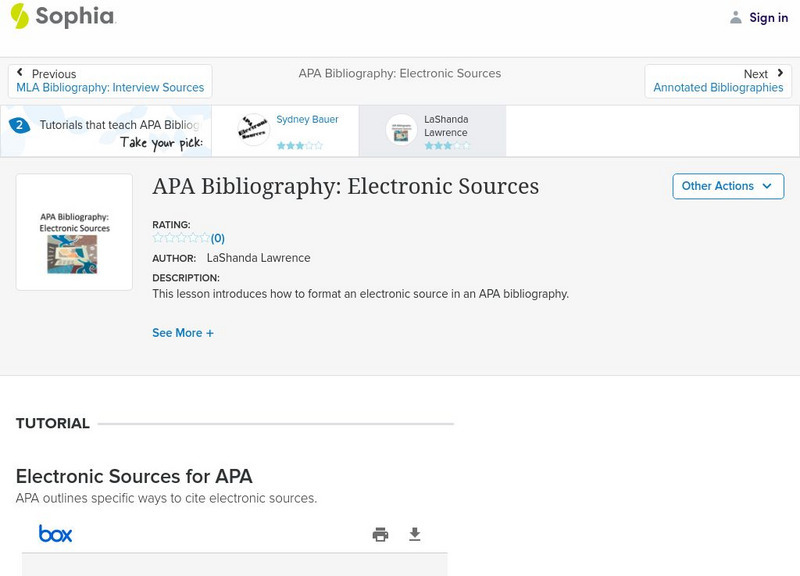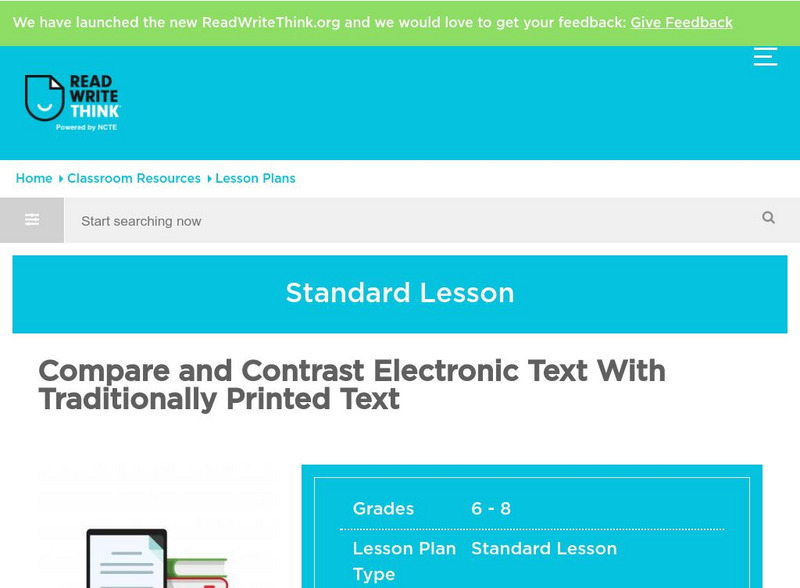Hi, what do you want to do?
Curated OER
Chromosome Fusion
Students see how patterns can reveal events of the past, thereby merging elements of both experimental and historical science.
Curated OER
Study of an Artist
Fourth graders research an artist, write a short report and do an oral presentation.
Curated OER
What are the Issues?
Seventh graders complete political analysis activities. In this political analysis lesson, 7th graders discuss party platforms and research party issues for their party's candidate's positions. Students complete an issues organizer and...
Curated OER
Separating Fact from Fiction
In this English grammar activity, students study a chart of definitions and pointers. Students then read 5 explanations as to how to separate fact from fiction.
Alabama Learning Exchange
Alex: How to Cite Online Resources
After research in the Alabama Virtual Library, students will write a paragraph essay and use an online citation utility to create bibliographic citations for an online encyclopedia, an online magazine, and a print resource. Copying and...
Other
University of Wisconsin Oshkosh: Classroom Connect: Citing Internet Sources
This page offers information specifying how to cite e-mail, World Wide Web sources, online images and sounds, newsgroups, and online video clips. Examples are included.
Library of Congress
Loc: How to Cite Digitized Primary Sources
Learn from the Library of Congress how to correctly cite the many electronic resources available in their collection. Films, legal documents, photographs, maps, sound recordings and other unusual cases are covered. Be sure you click on...
The Write Place
Literacy Education Online
Literacy Education Online (or LEO) is a great place to start if you need help with your writing. The homepage is organized around kinds of problems or questions you might have concerning your writing. Find your problem, click on the...
Library of Congress
Loc: History Firsthand: Primary Source Research
History Firsthand has been designed to provide elementary children with experiences which enable them to begin understanding primary sources. Students move from personal artifacts to the vast American Memory collections and learn how...
Online Writing Lab at Purdue University
Purdue University Owl: Types of Sources
A list and explanation of different types of print and online sources. W.11-12.8 Sources/Integrate/Cite
Information Fluency
Imsa 21 Cif Portal: Online Citation Wizards
Citing Internet resources can be painless with this user-friendly wizard. Choose the type of Citation Standard (APA, Chicago, CSE, Harvard, or MLA) and fill in your information to create a citation. The 21st Century Information Fluency...
Lumen Learning
Lumen: Using Sources: Using Online Citation and Reference Tools
This lesson focuses on using online citation tools and being aware that they make mistakes that must be corrected. W.9-10.8 Sources
Cambridge Rindge & Latin School
Cambridge Rindge & Latin School: Citing Sources: Parenthetical Documentation
An excellent tip sheet on how to document sources while writing and creating a research paper. Includes in-depth information and examples.
Better Lesson
Better Lesson: Avoiding Plagiarism and Citing Sources
In this scaffolded lesson, students engage in practice with determining whether or not research has been plagiarized. A short video demonstration is included. [03:44] This lesson addresses all three College and Career Readiness Standards...
Sophia Learning
Sophia: Apa Bibliography: Electronic Sources: Lesson 2
This lesson introduces how to format an electronic source in an APA bibliography. It is 2 of 2 in the series titled "APA Bibliography: Electronic Sources."
Kidsource OnLine
Kid Source on Line: Video Games and Children
The effects of video game use and video game violence on children are detailed here. Numerous early studies from the 80s and 90s are cited.
Other
Oregon School Library Information System
An excellent site that supports school libraries which includes tools for both elementary and secondary students. Choose the appropriate level to find resources on citing sources, research process, choosing research resources, finding...
Online Writing Lab at Purdue University
Purdue University Owl: Avoiding Plagiarism
Plagiarism is a serious offense in many educational settings. Plagiarism and copyright laws are reviewed here. Activities to avoid plagiarism are also provided through links. W.9-10.8 Sources, W.11-12.8 Sources/Integrate/Cite;...
Online Writing Lab at Purdue University
Purdue University Owl: Using American Psychological Association (Apa) Format
Extensive information on how to use the American Psychological Association (APA) format for citations. Information is provided on general format, referring to other works, reference list, notes, and examples in the APA format. W.9-10.8...
Department of Defense
Do Dea: Web Design: Module 3: Copyright Law
In Module 3 of this course on web design, students learn about copyright law and the Fair Use Act and how these apply to web design. They learn how to find free images online and save them to a computer, how to cite sources, and how to...
REMC Association of Michigan
Remc Association of Michigan: 21 Things4 Students: 9. Search Strategies
In this learning module, students learn how to: use Michigan eLibrary, boolean logic, and dictionary.com; use search engines; choose reputable websites; cite sources; and differentiate between real and fake information. Includes an...
Online Writing Lab at Purdue University
Purdue University Owl: Mla Formatting and Style Guide
Extensive examination of the Modern Language Association (MLA) format of writing papers, making reference to the works of others, citations, and notes. W.9-10.8 Sources, L.9-10.3a Standard Format; CCSS.ELA-Literacy.WHST.6-8.8 Gather...
Online Writing Lab at Purdue University
Purdue University Owl: Quoting, Paraphrasing, and Summarizing
Provides guidance on the ways to quote, paraphrase, and summarize information. Gives various reasons for paraphrasing, summarizing, and quoting various sources.
ReadWriteThink
Read Write Think: Compare/contrast Electronic Text With Traditionally Printed Text
Lesson allows for middle school students who are familiar with researching electronic sources to gain a deeper understanding of the benefits of online resources versus traditional print.



























